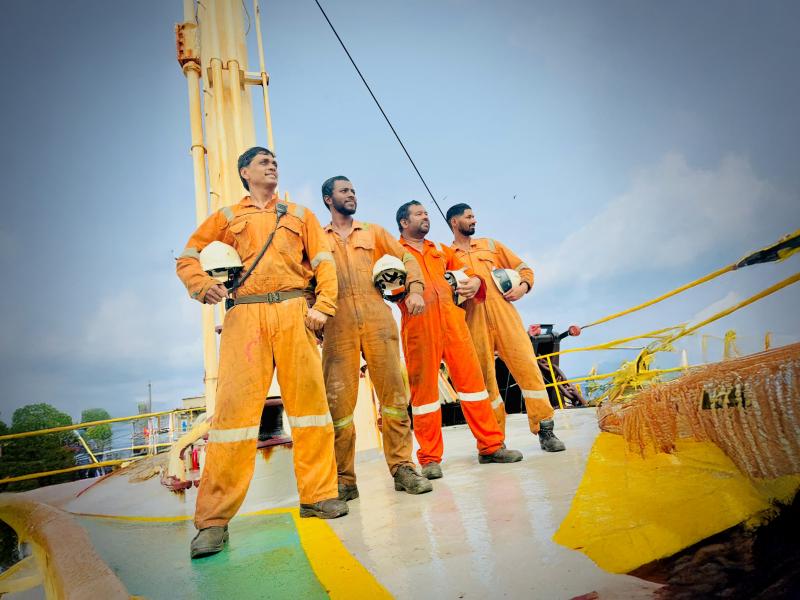Governments the world over must give the climate crisis the highest priority and ensure they protect workers during the turmoil it will cause, a new briefing from the International Transport Workers’ Federation (ITF) says.
COP27: Climate justice, worker justice details the ITF’s demands for government and employers ahead of the COP27 United Nations meeting on climate change which begins in Sharm el-Sheikh, Egypt, on Sunday.
“The workers who move the world, who keep countries moving are demanding leadership at COP27,” said Stephen Cotton, General Secretary of the ITF. “And their demands on governments are clear: raise your climate ambitions, deliver on climate finance and close the resilience gap, and commit to just transition plans in transport.”
Workers with climate ambitions
Transport is responsible for 15% of all greenhouse gases and at COP27, trade unions will demand a worker-led just transition to a new world where transport is carbon neutral and where workers and their livelihoods are protected.
“It is workers, far more than governments or transport companies, who have the most ambitious aims in tackling the crisis,” said Cotton. “The ITF is working in partnership with the whole industry, from shipping to public transport, to deliver transport plans that prioritise jobs and just transition alongside decarbonisation.”
“But if the investment in infrastructure and services isn’t there, we won’t reach the targets we need to limit catastrophic climate impacts. Reducing our global emissions by 45% by 2030 and reaching zero carbon by 2050 aren’t pie-in-the-sky aims, we’ve got to hit them if we are to survive the climate crisis.”
The briefing outlines how sustainable investment in transport can have huge benefits for a national economies and transport workers. For example, modelling by the ITF and C40 shows that investing in public transport in Johannesburg, South Africa, would create 54,000 jobs directly and another 73,100 indirect jobs.
“Transport workers must be included in the decision-making process,” said Cotton, “they have the direct experience of climate change and its impacts and expertise to help drive this transition. We have a sense of responsibility to make transport systems fit for the future and we won’t let governments off the hook until their plans and financing are at the scale needed to tackle the problem.”
This year alone, people in transport have worked through the floods in Pakistan, where a third of the country was under water. Europe’s hottest summer in 500 years saw transport workers face extreme heat, while severe storms brought chaos to the Philippines and the United States.
“Developed countries have failed to deliver on their USD $100 billion a year pledge to assist developing to tackling climate change. Those governments have simply not lived up to that promise and need to make up the shortfall,” said Cotton. “We face a catastrophe if we cannot limit global warming to 1.5oC. Investment is key to meeting the challenge and for real transformation of transport. But without urgent action from governments to drive investment and hold corporations to account, we’re all in trouble.”
ITF demands at COP27
1. Raise climate ambitionGovernments, business and transport unions must work together to decarbonise transport to keep the 1.5°C goal alive, and to play our part in reducing emissions by 45% by 2030 and reaching zero carbon by 2050.
To get there we must fast track the energy transition with sustainable aviation fuels, hydrogen, alternative fuels and electrification.
2. Deliver on climate finance and close the resilience gapFulfil the $100 billion pledge, ramp up investment in sustainable transport infrastructure and services, and secure finance for loss and damage to transport infrastructure, and improve conditions for workers.
Governments must step up and fund adaptation plans to build climate resilient transport systems and worker conditions fit for future climate realities.
3. Commit to just transition plans in every transport sectorMake transport a public good though government action and democratic control with good union jobs and just transition. Just transition standards must be included in new agreements on climate finance.
Public ownership of key transport infrastructure: urban transport, rail, aviation should be a central part of transport plans.



